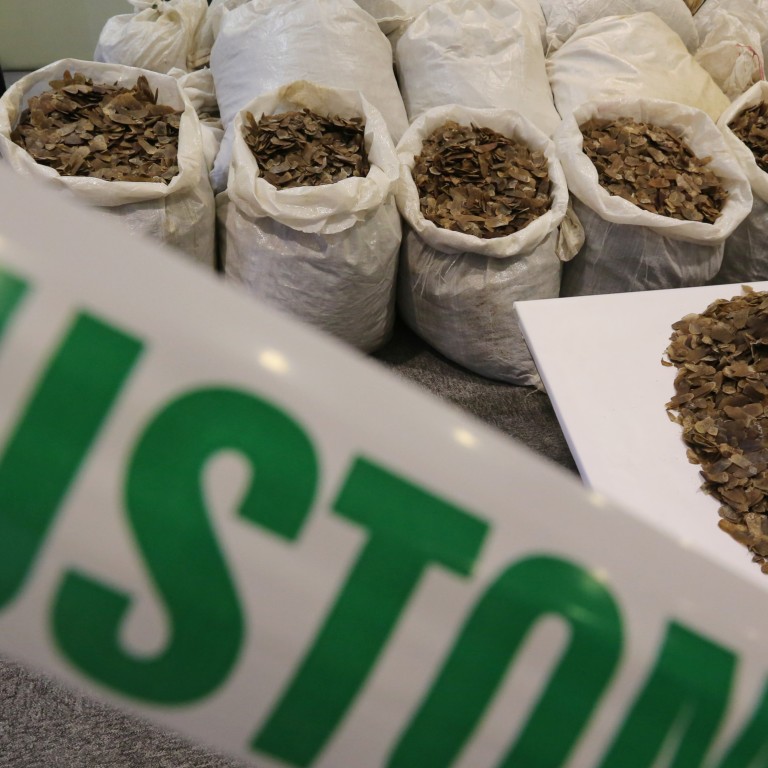
Failing to grasp dire consequences of Africa's wildlife trade
As a conservation biologist from Hong Kong doing research in Central Africa, I am often asked a question some find surprising: "Will Hong Kong and China work to save the wildlife here?"
As a conservation biologist from Hong Kong doing research in Central Africa, I am often asked a question some find surprising: "Will Hong Kong and China work to save the wildlife here?"
Hiking through the Dja Faunal Reserve in southern Cameroon last summer, I was in awe of the massive tropical forest canopy overhead. Enormous hornbills flew above and dozens of brilliant butterfly species flew around my feet. But butterflies and birds weren't alone on the trails - I also found scattered shotgun shells.
While I wasn't lucky enough to see any live monkeys, I did meet a woman peddling a dead one in her basket. I also spotted pangolins for sale on the roadside.
This June, Hong Kong customs seized over 2,000kg of pangolin scales concealed in a container marked "timber" from Cameroon. Such stories are depressingly commonplace; illegal shipments of ivory are discovered on a seemingly regular basis.
This demand from Asia has clear consequences and in the past decade Central African elephant populations have declined by a staggering 60 per cent.
If more people on the mainland and in Hong Kong truly understood and deeply felt the consequences of the wildlife trade, the crisis might not be nearly so dire. But often we fail at simple geography (I am frequently asked where Cameroon is located) let alone succeed at understanding the nuances of wildlife trafficking.
The recent decision by major Hong Kong retailers (including Wing On, Yue Hwa and Chinese Arts and Crafts) to stop selling ivory does offer some hope.
This action follows the clear signal sent by the Hong Kong government earlier this year when it began burning its confiscated ivory stockpile.
Though much remains to be done, a critical message is starting to get through. We care about Africa's wildlife.
We want to live in a world where elephants roam the forest, not one where they are violently slaughtered and eventually fade into memory.
Cameroon may seem far from Hong Kong, but we have a responsibility to protect biodiversity in Central Africa.
If we continue to demand an end to the illicit trade in wildlife products in Asia, I am hopeful that the Dja Reserve and other great forests of the Congo Basin will no longer echo with the shots of poachers, but hum with the enormous diversity of life that is our collective trust.

